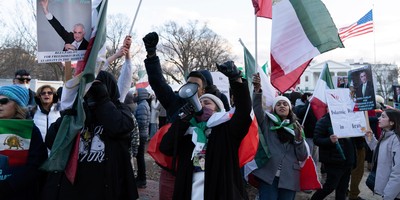Ralph's Thriftway, a local family-owned grocery store and pharmacy, would not be one of them.
"Petitioners are Christians who believe that life is sacred from the moment of conception," lawyers representing Stormans, Inc. (the family corporation that owns Ralph's) and two individual pharmacists (who do not work at Ralph's) wrote in a January petition to the Supreme Court.
"Because of their religious beliefs," said the petition (co-authored by attorneys from the Beckett Fund and the Alliance Defending Freedom), "petitioners cannot stock or dispense the morning-after or week-after pills, which the FDA has recognized can prevent implantation of an embryo.
"For petitioners," the lawyers told the court, "dispensing these drugs would make them guilty of destroying human life."
"Within five miles of Ralph's, over 30 pharmacies carry Plan B," they told the court. "Plan B is also available from nearby doctors' offices, government health centers, emergency rooms, Planned Parenthood, a toll-free hotline and the internet."
But pro-abortion activists in Washington state would not tolerate a family business such as Ralph's declining to sell an abortifacient drug while instead referring customers seeking one to another nearby pharmacy.
These advocates of the culture-of-death do not believe people who operate pharmacies -- whose true mission is to help preserve life -- should be allowed to conscientiously object to cooperating in the taking of it.
Recommended
Nine years ago, the Washington Board of Pharmacy issued regulations that effectively barred pharmacies in the state from declining to stock or sell abortifacient "emergency contraceptives" for moral or religious reasons.
The owners of Ralph's Thriftway made a simple plea in federal court: Protect our First Amendment right to the free exercise of religion.
The U.S. District Court for the Western District of Washington heard their case in a twelve-day trial.
Judge Ronald B. Leighton, a George W. Bush appointee, summarized the case in the opinion he issued in 2012.
"This case," he wrote in the first sentence of that opinion, "presents a novel question: can the state compel licensed pharmacies and pharmacists to dispense lawfully prescribed emergency contraceptives over their sincere religious belief that doing so terminates a human life? In 2007, under pressure from the governor, Planned Parenthood, and the Northwest Women's Law Center, the Washington State Board of Pharmacy enacted regulations designed to do just that."
Judge Leighton put the consequences plainly: "In the case of a pharmacy owner with religious objections to Plan B, there is no option other than to leave the business -- and the board was well aware of this result when it designed the rule."
He concluded: "The facts of this case lead to the inescapable conclusion that the board's rules discriminate intentionally and impinge plaintiffs' fundamental right to free exercise of religion."
But the U.S. Court of Appeals for the 9th Circuit overturned this opinion and upheld the Washington state regulations.
The Stormans' family business and two pharmacists then asked the U.S. Supreme Court to take up the case. To do so, four justices would have needed to agree to it.
But Justices Anthony Kennedy, Ruth Bader Ginsburg, Stephen Breyer, Elena Kagan and Sonia Sotomayor did not.
We know this because last week Justice Samuel Alito -- joined by Chief Justice John Roberts and Justice Clarence Thomas -- issued a dissent to the court's refusal to take up the case.
Alito, too, succinctly explained the impact of the Washington state regulations.
"The dilemma this creates for the Stormans family and others like them is plain: Violate your sincerely held religious beliefs or get out of the pharmacy business," Alito wrote.
"The bottom line is clear," Alito said. "Washington would rather have no pharmacy than one that doesn't toe the line on abortifacient emergency contraceptives."
At the beginning of his dissent, Alito targeted the appeals court and the Supreme Court on which he serves.
"Yet the Ninth Circuit held that the regulations do not violate the First Amendment, and this court does not deem the case worthy of our time," he said. "If this is a sign of how religious liberty claims will be treated in the years ahead, those who value religious freedom have great cause for concern."
To force a family-owned pharmacy whose proper aim is to serve human life to cooperate in the taking of it -- or to leave the pharmacy business -- is an act of tyranny. It is an act that simultaneously attacks the right to life and the freedom of conscience.
And five justices on the now eight-member Supreme Court silently let it stand.

























Join the conversation as a VIP Member